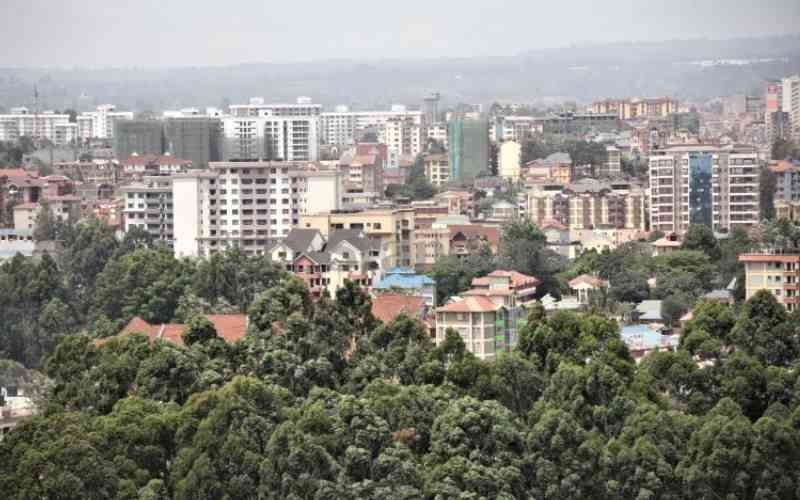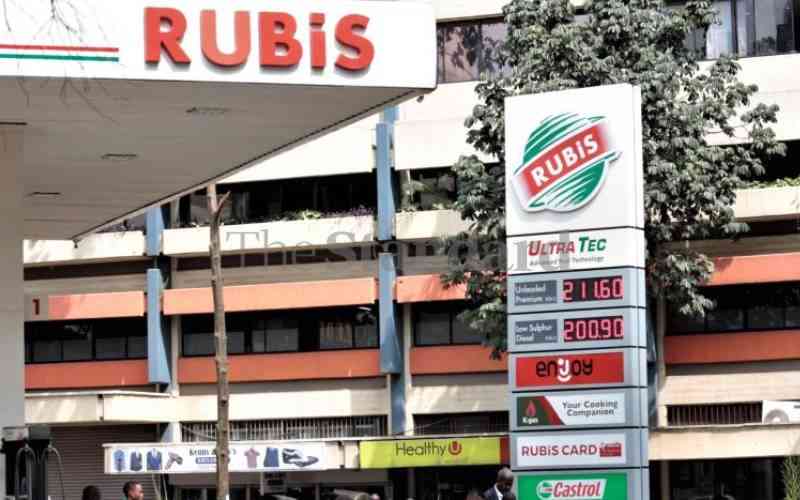 |
|
The Westgate Mall in Nairobi. Gunmen attacked the upscale shopping centre on Saturday. [PHOTO: FILE] |
By MACHARIA KAMAU
Hundreds of businesses in Nairobi’s Westlands area were yesterday reeling from the effects of the siege on Westgate Shopping Mall.
Many of the businesses operated at a below capacity while others opted to close shortly after opening on Monday.
Activity at the Nairobi Securities Exchange (NSE) was also subdued, with the number of shares traded during yesterday’s session going down by 50 per cent to 14.2 million compared to 28.4 million traded during Friday’s session.
The NSE 20 share index also went down 12.40 points to close at 4, 739.42 points.
The local currency was also weaker on Monday trading at a mean of Sh87.42 to the dollar yesterday morning compared to Sh87.38 on Friday.
Nairobi Business District Association chairman Daniel Gachuru said aside from the Westgate area being declared a security zone on Saturday, most businesses in Westlands and the rest of the city had resumed business on Monday.
However, he cautioned that the tension that persisted over the weekend and throughout the day yesterday could see productivity drop.
He said though Westlands is the epicentre and has felt the effect more, the whole Nairobi has been affected.
Revenue losses
“People might be back to work in other parts of the city but productivity will be low as long as there are uncertainties hanging around,” he said in an interview.
Gachuru said it is still too early to determine revenue losses incurred by businesses in Westlands due to the uncertainty.
However, he noted that there is loss of revenue for the 100-odd businesses situated at Westgate as well as businesses in the vicinity.
“There are also additional costs especially of security that businesses have to deploy,” he stated.
Gachuru noted that the Westgate building houses many businesses and this would be a drawback in terms of loss of revenues for them as well as tax remissions.
“There is also the cost of resources that have been deployed in securing the location and the surrounding areas that would have been employed in other productive areas,” he said.
Gachuru described the tragedy as a big learning experience and going forward, NCBDA would look at how it could sensitise people about terrorism. He said the association would hold anti-terrorism trainings to teach people how to perceive it and where to report information.
City centre
Westlands has in the recent past emerged as an alternative base of operations for many firms avoiding the congested city centre.
Many buildings have been put up in the area to cater for growing demand.
Though admitting that the situation was grave and had potential to significantly affect businesses especially in the hospitality industry, the government downplayed the impact on tourism so far.
Cabinet Secretary Tourism, Commerce and East African Community affairs Phyllis Kandie said activities in the tourism industry have been going on uninterrupted.
“Normal activities are going on despite this grave and enormous challenge,” she said. The government has also scaled up security in other social places across the country. Tour operators and travel agents also confirmed that tourism activities continued uninterrupted.
Agatha Juma, chief executive Kenya Tourism Federation said two major international conferences on eco-tourism and hotel investments slated to start today morning would go on as scheduled.
She said the terror attack has had a minimal impact on bookings.
 The Standard Group Plc is a multi-media organization with investments in media
platforms spanning newspaper print operations, television, radio broadcasting,
digital and online services. The Standard Group is recognized as a leading
multi-media house in Kenya with a key influence in matters of national and
international interest.
The Standard Group Plc is a multi-media organization with investments in media
platforms spanning newspaper print operations, television, radio broadcasting,
digital and online services. The Standard Group is recognized as a leading
multi-media house in Kenya with a key influence in matters of national and
international interest.
 The Standard Group Plc is a multi-media organization with investments in media
platforms spanning newspaper print operations, television, radio broadcasting,
digital and online services. The Standard Group is recognized as a leading
multi-media house in Kenya with a key influence in matters of national and
international interest.
The Standard Group Plc is a multi-media organization with investments in media
platforms spanning newspaper print operations, television, radio broadcasting,
digital and online services. The Standard Group is recognized as a leading
multi-media house in Kenya with a key influence in matters of national and
international interest.










